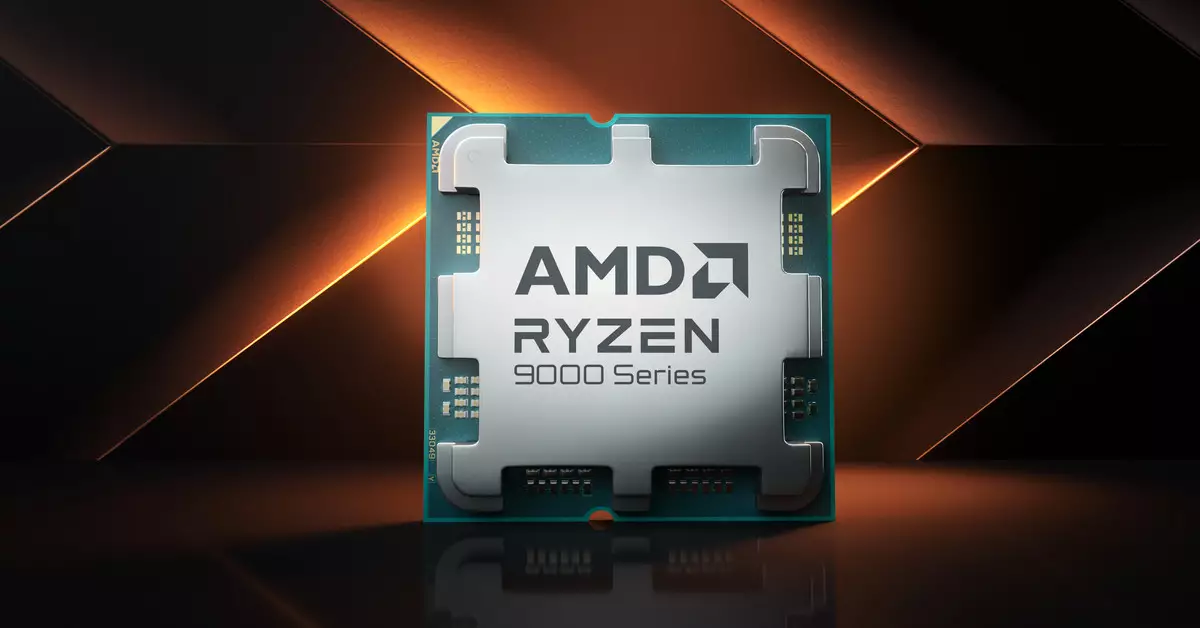In the fast-paced world of technology, surprises can be both exciting and alarming. Recently, AMD’s forthcoming Ryzen 9000X3D desktop processors found themselves under the spotlight due to an unexpected leak. The unveiling, courtesy of an MSI presentation highlighted by HardwareLuxx, introduces an array of insights regarding these processors, creating a buzz among enthusiasts and professionals alike. However, one important takeaway is that this revelation hints at a less-than-stellar upgrade from AMD’s previous offerings.
Performance Metrics and Comparisons
AMD’s Ryzen lines have traditionally been praised for their performance, but the Ryzen 9000 series has garnered mixed reviews. The newly disclosed Ryzen 9000X3D chips promise a commendable fortification in multicore performance, with the eight-core variant reportedly achieving up to a 28 percent boost over its predecessor, the Ryzen 7 7900X3D, in Cinebench R23 tests. However, gamers may find themselves disappointed as performance gains in popular titles like Black Myth: Wukong and Shadow of the Tomb Raider are cited to be a mere 2 percent, leaving many to question whether the advancements truly warrant an upgrade.
Despite these underwhelming metrics, MSI noted that these results could potentially shift towards better outcomes as retail versions become available. This caveat leaves fans lingering on the hope that AMD may, in fact, surprise them with unexpected improvements as the product progresses towards its launch.
Red Flags and Future Projections
Particularly noteworthy is the realization that the performance metrics of the Ryzen 9000X3D chips appear overly similar to the initial Ryzen 9000 series. The lack of significant differentiation raises eyebrows among tech analysts and consumers who were anticipating more substantial enhancements. Given AMD’s history of innovation, one contemplates the strategic reasoning behind what seems like a conservative approach this time around.
Moreover, the circumstances surrounding the leak—where the AMD information was seemingly sandwiched within a presentation primarily geared towards Intel’s new Core Ultra 200S processors—adds an extra layer of intrigue. Was this an inadvertent slip, or is it indicative of a broader trend where details of competitive products become intertwined? The confusion surrounding whether an embargo was breached or tactical miscommunication occurred only amplifies the uncertainty shrouding these new processors.
As the tech community braces itself for AMD’s Ryzen 9000X3D desktop processors, the insights gleaned from the recent leak paint a convoluted picture of anticipation and apprehension. With performance metrics that could either enchant or disenchant users, and competitive landscape factors at play, AMD stands at a crossroads of sorts. The lack of robust performance improvements lends itself to the question: can AMD deliver the compelling leap that consumers yearn for, or will they continue to tread cautiously, caught between market demands and technological capabilities? The answers may not only shape the future of AMD but also define the trajectory of desktop computing in an evolving technological landscape.

